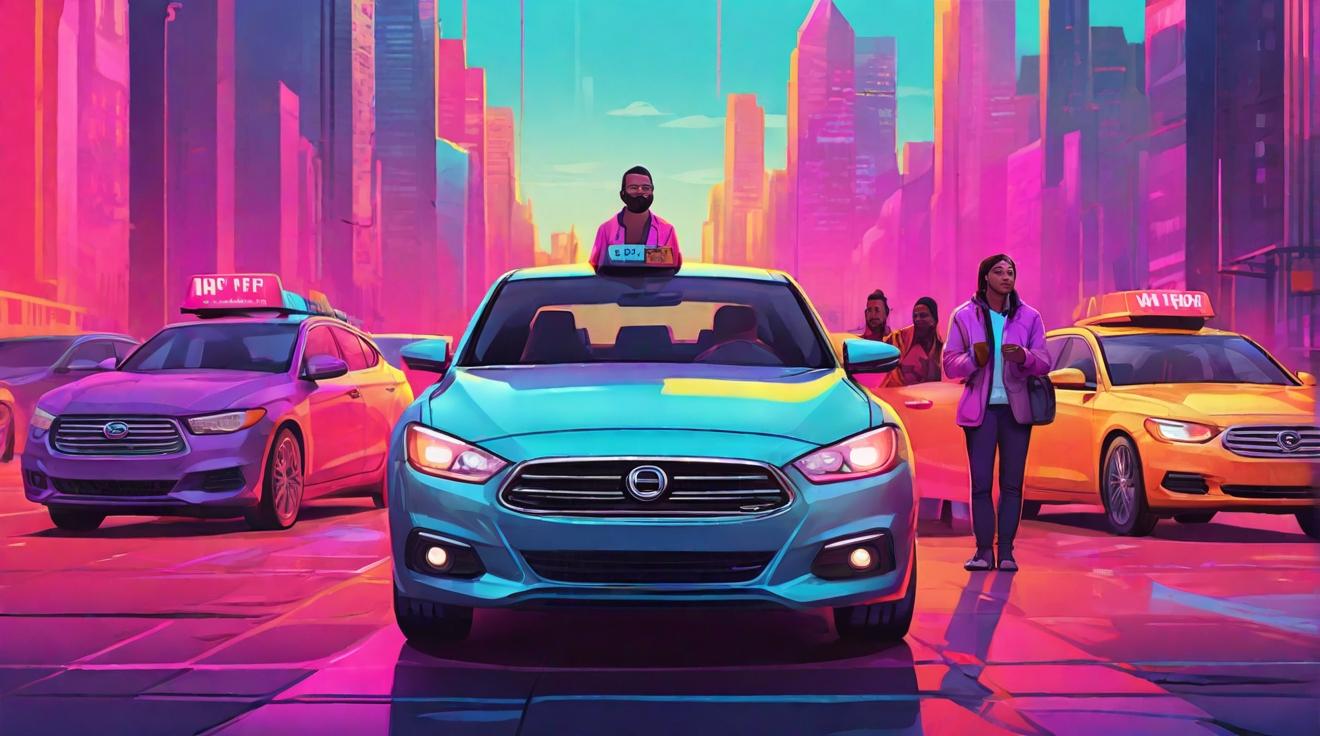Nationwide Ride-Sharing and Food Delivery Workers Strike for Better Conditions
In a bold move that underscores the growing discontent among gig economy workers, ride-sharing and food delivery drivers across the country have initiated a nationwide strike on Valentine's Day, hoping to pressure industry giants like Uber, Lyft, and DoorDash into instituting much-needed changes. This landmark protest highlights the drivers' demands for fair pay and safer working conditions, marking a significant moment in the ongoing discourse surrounding the rights of gig economy workers.
The strike, notably impacting operations to and from airports, has resulted in reduced traffic, as seen at Newark Liberty International Airport, where some Port Authority police officers reported much less activity. This nationwide protest aims to draw attention to the challenges faced by drivers, advocating for a more equitable treatment in an industry known for its rapid expansion and technological innovation.
Responses from Uber and Lyft
In response to the stirrings of dissent, both Lyft and Uber have issued statements outlining their efforts to address the concerns raised by their driver-partners. Lyft’s spokesperson announced, “We are constantly working to improve the driver experience,” unveiling new offers and commitments that promise to increase driver pay and transparency. Among these commitments, Lyft guarantees that drivers will now retain at least 70% of the weekly rider fares, after external fees, underscoring the company's new customer-obsessed focus on its drivers.
Uber, maintaining a somewhat different stance, pointed out that such protests have historically had little impact on their operations. Despite the unrest, Uber's spokesperson emphasized that driver satisfaction remains high, with earnings continuing to be robust. As of the last quarter, drivers in the U.S. were making approximately $33 per utilized hour, a testament to the company’s ongoing efforts to improve safety features and account deactivation processes based on driver feedback.
A Pivotal Moment for Gig Economy Workers
This Valentine's Day strike signals a critical juncture for the gig economy, placing the spotlight on the pressing issues faced by thousands of drivers who form the backbone of ride-sharing and food delivery services. As these workers band together to demand changes, the actions of companies like Uber, Lyft, and DoorDash will be closely monitored by advocates for labor rights and fair employment practices.
With the gig economy poised for further growth, the outcomes of this protest and the responses from these major players could set significant precedents for how gig workers are treated in the future. As the world watches, this could either be a turning point towards more sustainable labor practices in the gig economy or a missed opportunity to address the concerns of those who power this increasingly indispensable sector of the economy.
Analyst comment
Positive news: The nationwide strike by ride-sharing and food delivery workers draws attention to their demands for fair pay and safer working conditions, highlighting the ongoing discourse surrounding gig economy workers’ rights.
As an analyst, I predict that the market may experience some short-term disruption due to reduced traffic at airports and potential public backlash against the companies. However, the responses from Uber and Lyft to address driver concerns may help alleviate tensions and prevent a long-term impact on their operations. The outcomes of this protest will have significant implications for the treatment of gig workers and could shape future labor practices in the industry.













